Leadership values can help boost productivity and reduce stress among employees
Gallup’s 2024 State of the Global Workplace report indicates more team members are struggling with mental health issues. This leads to a loss of productivity, more frequent accidents and a general malaise among team members. Some 60% of team members working in organizations with low engagement scores and ineffective leadership said they experience high-stress levels at work.

The role of a leader has also changed. Gone are the days when a hotel’s general manager would line up staff to check if their nails were clean or bark out orders to employees, only to turn around and act graciously toward guests. The lines around how guests and team members are treated have shifted. Some managers may need to develop and practice new skills to get the same work done in a collaborative, supportive and motivating way.
Effective leadership in 2024 means caring for your team, recognizing everyone for who they are, and ensuring they feel like they belong. This approach can be tested during times of stress: when a dissatisfied guest voices their displeasure, when team members have worked double shifts with insufficient time to reenergize, or even when a hotel is underperforming financially.
In my experience developing, coaching and assessing leaders, I have identified seven core attributes that are crucial for effective leadership. When understood and practiced, these qualities can both reduce work stress levels and empower leaders with the tools to lead a successful organization.
1. Communication
People want to know the rules and what is expected of them. Clear communication not only builds loyalty but also reinforces the significant role each individual plays in the organization.
2. Transparency
Elements of top-secret discussions sometimes leak. If team members don’t have complete information, gossip and misinformation can distract everyone from doing their job well. As much as possible, without jeopardizing the confidentiality of guests or team members, share information as quickly as possible.
When a decision is made, give the background on why it was made, especially if it is controversial. Even if you don’t support the decision, leaders must unite and share it with their team members with positivity and conviction. Practicing in advance will help you deliver the message with confidence and positivity.
3. Motivation and recognition
Serving hotel guests can be a difficult job. Often, it’s not the physical strength required that is the issue but the emotional and physiological skills called upon for team members to perform repetitive, tedious, and sometimes boring tasks. Motivating team members based on what is important to them is an empathetic and compassionate approach to leading effectively. This is why getting to know each person on the team and who they are as an individual is imperative. Build a relationship with each team member, focusing on what makes them tick.
Recognize and reward actions that support the organization’s service culture. Be specific and immediate when you acknowledge work well done.

4. Trust
Leadership must exemplify the core values of the organization. The chef who yells at their team or the sales manager who pads an expense account — are these leaders exemplifying what the company stands for? Do they exemplify a culture of trust?
Guests around the world trust their safety, well-being and, often, their possessions to hoteliers. Celebrities trust hotel team members to protect their privacy. Workplace trust starts with leadership that develops a culture where team members feel safe — not just physically, but also to speak up, identify problems and propose solutions.
5. Authenticity
Be human — share your stories, successes and failures. Admit when you make a mistake. This takes courage. The team will pay more attention to your actions than your words. Know your strengths and weaknesses and, most importantly, what you value. Do your actions and behaviors exemplify what you are asking of your team?
Walk the talk and be an example, even when no one is looking.
6. Ask for input, then listen
Gather all the information before making a decision. This can mean asking team members for their ideas, solutions and feedback.
Listen — really listen — giving your full attention to the team member. Ask questions to understand what they are trying to say. Be gracious when they provide feedback on your leadership effectiveness and end the conversation with “Thank you.”
7. Accountability
Follow up regularly to ensure accountability for each team member. This includes yourself as the leader—if you say you will do something, do it! This helps build a foundation of trust.
Above all, have fun. If you aren’t having fun at work, you can be sure your team isn’t either. Having a sense of humor and using it liberally can defuse almost any situation.
Being an effective leader in 2024 can be complicated. However, starting with a caring, empathetic attitude is the first step toward leading a healthy, strong and effective team.
Jo-Anne Hill, ISHC, is the founder of JH Hospitality Consulting, which leads hotels to revenue and profitability by creating a culture of service excellence. During her hospitality career, she has worked for The Ritz-Carlton Hotel Company, Four Seasons Hotels & Resorts, Mandarin-Oriental Hotel Group, Dorchester Collection, and Shangri-La Hotels & Resorts.




